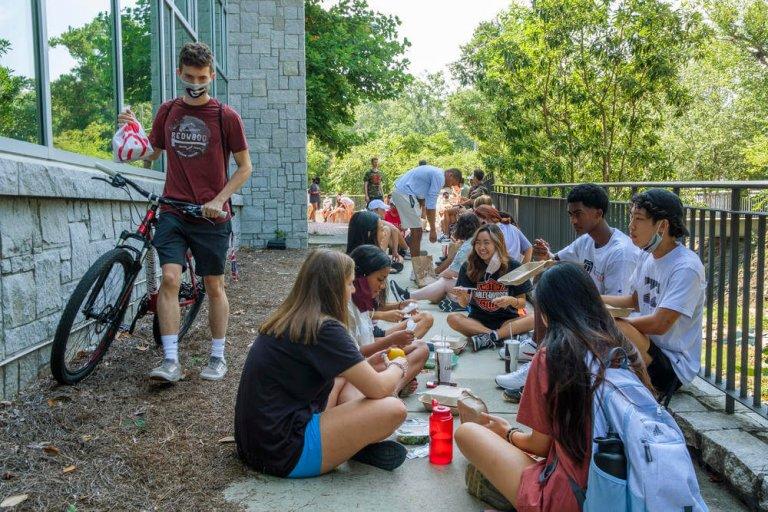
Caption
Last semester, University of Georgia freshmen ate lunch behind one of the main dining halls where inside dining was by reservation only. A prompt return to face-to-face learning was a top priority for retiring University System of Georgia Chancellor Steve Wrigley.
Credit: Grant Blankenship

